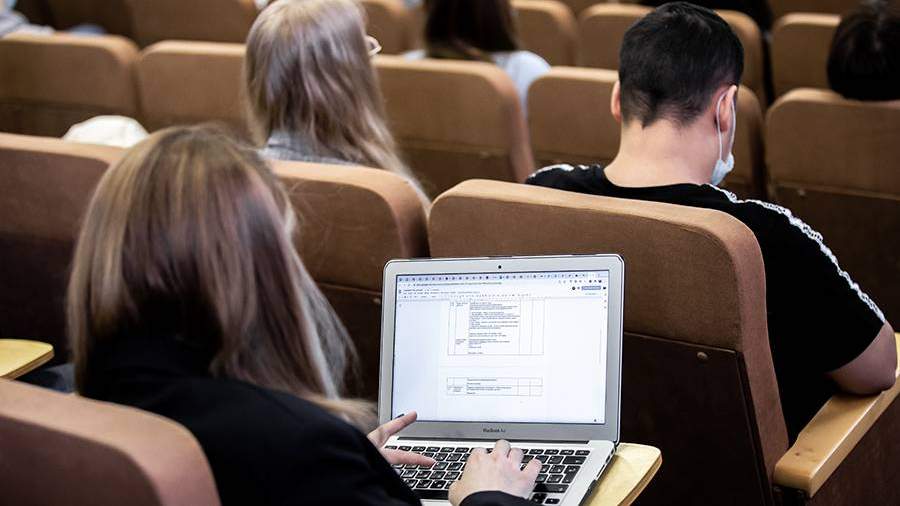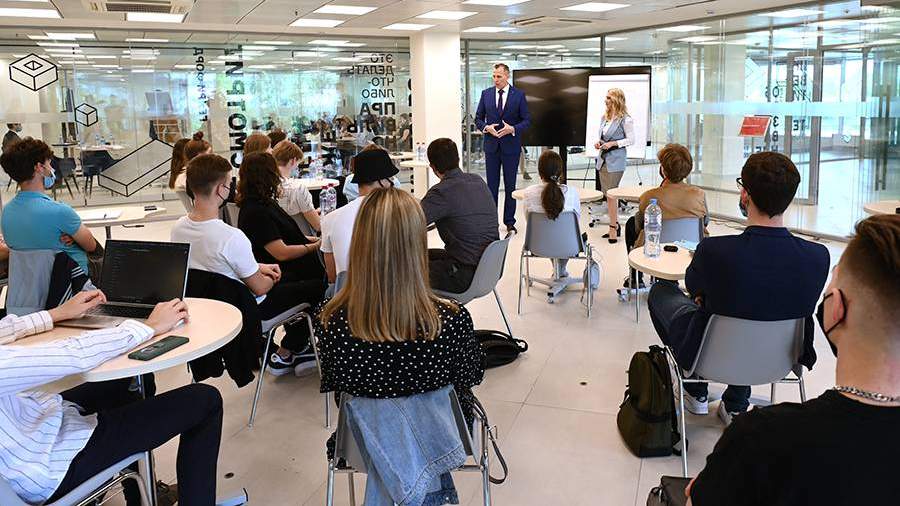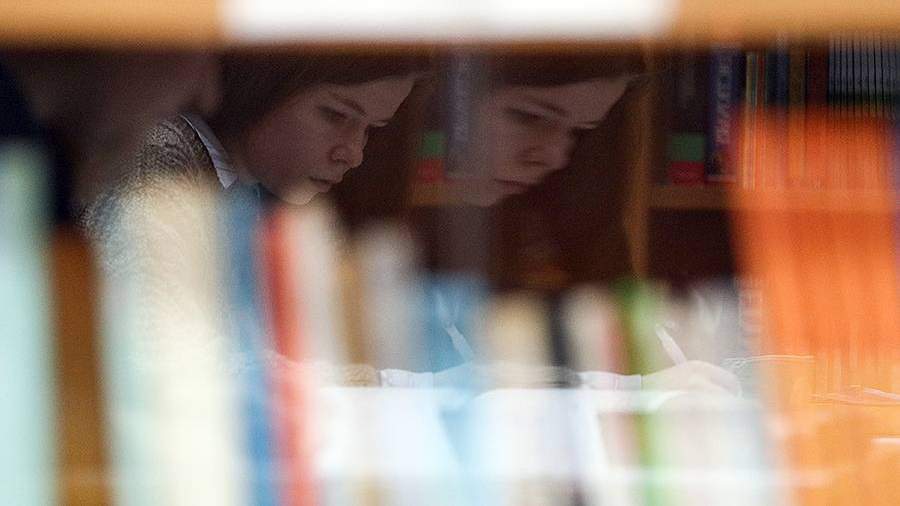The implementation of the University Technology Entrepreneurship Platform will allow organizing tens of thousands of startups. The main goal is to help enthusiasts bring their products to market. Details – in the material “Izvestia”.
A new generation of student entrepreneurs
Russian Prime Minister Mikhail Mishustin signed a decree approving a new strategic initiative called the University Technology Entrepreneurship Platform. It is about creating an ecosystem of technology entrepreneurship around universities to form a pool of fast-growing technology companies.
– The implementation of the initiative of technological entrepreneurship at universities will allow us to create at least 30 thousand new university startups and 150 thousand high-tech jobs in innovative sectors of the economy, to attract a total of 180 billion rubles in the early stages of student startups, – said Russian Deputy Prime Minister Dmitry Chernyshenko.
The launch of the new platform is an extremely important initiative that will allow using the scientific potential of universities and engineering competencies of students to create products that are in demand on the market. Vyacheslav Shoptenko, director of the Institute for Organizational Development and Strategic Initiatives (IORSI RANEPA), member of the Council of the Ministry of Education and Science for State Youth Policy, told Izvestia about this.
“The number of such projects, in comparison with classic entrepreneurship, will be quite limited,” says Vyacheslav Shoptenko. – But even one high-tech project, if deployed correctly and with good business performance, can have a significant impact on the economy as a whole. For a new generation of technology students and entrepreneurs to emerge, it is necessary to change the environment, and in this sense it is logical that start-up studios will be created not within universities, but within their perimeter and will act immediately on market principles. It is no coincidence that the platform concept used the experience of the last 20 years in the creation and operation of business incubators and other structures to support technology entrepreneurship.
The initiative includes four areas. This is the involvement of students in work through assessment technologies, intensive courses, business games, business trainings conducted in universities. Also, with the support of the entrepreneurial community, it is planned to open university start-up studios. At the pilot stage in 2022-2024, a network of 15 such studios will be launched. They will train the team and form mechanisms to assist in business processes.
– This is another of many government and public initiatives undertaken over the past 30 years to transform the higher education system and business development in Russia, to improve the business environment.– says the rector of the State Academic University of the Humanities (GAUGN), member of the Public Council of the Ministry of Education of the Russian Federation Denis Fomin-Nilov. – We hope that the platform will have a certain impact on the formation of the public-private system and will contribute to the development of entrepreneurship in Russia.
The Department of Innovative Development of the Kazan (Volga Region) Federal University told Izvestia that the platform should become part of the ecosystem of technology entrepreneurship around universities. One of the platform’s top priorities is to attract professional investors to fund the best university startups. This, of course, should facilitate the involvement of the most active students in technological and innovative entrepreneurship.
“At the same time, you need to understand that this is just one of the tools for transforming student projects into entrepreneurial ones,” the Kazan Federal University emphasized. – In addition, the platform must go through the stages of formation and implementation. Our experience shows that the use of assessment technologies in business education gives a positive result, contributing to an increase in the number of student projects with the potential to turn them into startups.
Novosibirsk State University (NSU) noted that The student entrepreneurship platform provides students with tools to build capacity. And the task of universities is to offer relevant knowledge, create a space for effective interaction with the existing business and opportunities for the disclosure of skills related to business activities.
Nina Feodosiadi, Director of the HSE Business Incubator, expects a great effect in the creation of student startups and their rapid development from the initiatives provided by the platform.
– What was previously lacking in our work, we have now managed to envisage: these are special opportunities in attracting investments in start-up projects of students and the recognition of an entrepreneurial trajectory in the educational process through the provision of academic leave – this is important, since the creation of a startup often does not allow for effective engagement training and students are expelled from the university, – said Nina Feodosiadi.
What is needed to develop technology entrepreneurship
Alexander Abrosimov, the Commissioner for the Protection of the Rights of Entrepreneurs in St. Petersburg, told Izvestia that in the regions, it is necessary to develop business support infrastructure according to the principle “business incubator – industrial park – special economic zone”. This will stimulate the emergence of new industries.
“As the covid times have shown, the most stable companies operate in the real sector of the economy,” says Alexander Abrosimov. – In my opinion, such centers should have a production base (from machine tools to computing centers, equipped laboratories, etc.). In addition, it is very important that all projects are provided with accounting and legal support, and the protection of intellectual property for start-up entrepreneurs is guaranteed. Then it will be possible to talk about the creation of full-fledged business incubators for startups. The next logical stage in business development is the transition from a business incubator to the sites of industrial and technical parks. Moreover, both new and already operating industries need a stable lease of premises.
Nina Feodosiadi, Director of the HSE Business Incubator, notes that Creation of a startup studio at the university is extremely important for the development of technological entrepreneurship: this allows you to be organizationally involved in work with startups and makes the startup itself a product that can be legally sold to partners. According to her, a startup studio is a market tool through which entrepreneurs can gain legal access to the university’s ecosystem of entrepreneurship and build real market chains.
“We also see the need to create special programs for training mentors and trackers from among real entrepreneurs to work with student startups,” says Nina Feodosiadi. – Now these people are extremely few, and the teachers are completely unsuitable for such work.
The initiative is not without risks
Meanwhile, some experts have concerns about how to implement the new platform. Ivan Nevolin, a leading researcher at CEMI RAS and associate professor of the Faculty of Economics at GAUGN, believes that “Organizing a platform with a focus on educational programs and grants runs the risk of degenerating into ‘serial entrepreneurship’ at its worst.”
“Serial entrepreneurship is the creation of different startups by the same team,” says Ivan Nevolin. – In the worst case, a startup appears, receives a grant / investment, dies, and its initiators launch a new one, receive cash infusions – and then follow a known cycle. In this case, we will get nothing but a costly budget item – it doesn’t matter whether it is state or commercial. And a large portfolio of intellectual property, the qualifications of the performers do not guarantee success.
The expert cites the example of Nathan Myhrvold, a patent aggregator Intellectual Ventures, who not only buys up promising developments, but also conducts his own research. But, alas, billions of dollars invested since its inception in 2000 have still not paid for themselves.
– Without the creation of special regimes for startups, we, as a country, risk being in the same position: there will be trained students, there will be products, startups will be, but there will be no effect for the economy in the sense of commercially successful enterprises, says Ivan Nevolin. – That is, you can get new startups, create jobs, but they will be backed by regular subsidies, and the net effect will be negative.
I must say that attempts to stimulate start-ups in the scientific environment in modern Russia have already been made. Of the latter, one can recall the permission for small innovative enterprises (SIE) at universities in accordance with Law No. 217-FZ. In fact, as shown by a recent study, most of them have been closed for a long time, and a small number of successful ones provide services in the oil and gas sector and have been created at specialized universities for the industry. The reason for the failure, according to experts, is the distortion of foreign experience in adapting to Russian conditions.
– Will the platform help to make domestic education less formal for young people? It seems to me that here it is nevertheless necessary to divide education as a necessary set of knowledge within the framework of educational standards and the superstructure that will make it possible to implement some business ideas of students, ”says Yuri Saprykin, Vice President for Regional and International Development of the Skolkovo Foundation. … – In terms of tools to support and implement ideas, of course, the work should be organized informally. Startup studio, as one of the tools, [для этого подходит]…
Another difficulty, according to Nina Feodosiadi, is that now there are not enough practitioners who are ready and able to invest in the development of the university in terms of entrepreneurship. We do not have a market for startups themselves and there are many difficulties in the legal registration of transactions, there is no full-fledged practice of selling shares in startups and liquidity in this segment. But the expert expects that this area will gradually develop, and the platform is already a giant step.
“If a person is not ready to take risks, and entrepreneurship is primarily a risk, then no platform can make him an entrepreneur,” Yuri Saprykin believes. “For example, we see our task in ensuring that the Skolkovo ecosystem, which the state has formed, would help those who want to do technology business. Today, the country has created all the opportunities for this, and close cooperation with universities will bring this work to a new level.
#rich #students #encouraged #learn #businessmen
source https://pledgetimes.com/get-rich-students-are-encouraged-to-learn-to-be-businessmen/





Disqus comments